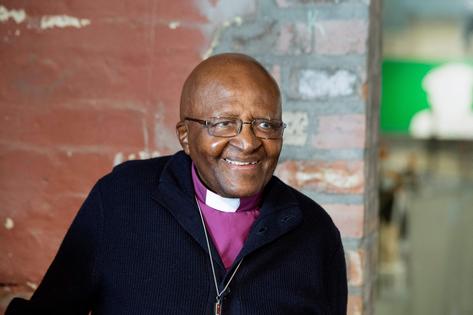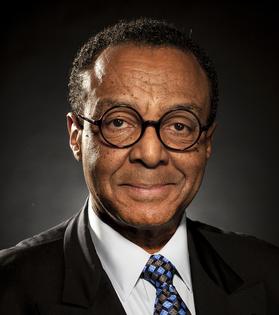We Have a Lot to Learn from Archbishop Tutu. Even From His Mistakes
As tributes poured in from world leaders for Archbishop Desmond Tutu after the Nobel Peace Prize laureate died Sunday at age 90, so did some heated criticism.
“Can I remind the world,” said famed Harvard law professor Alan Dershowitz in a Fox News interview the next day, “that although he did some good things, a lot of good things on apartheid, the man was a rampant antisemite and bigot?”
Dershowitz claimed that Tutu had downplayed the Holocaust and “compared Israel to Nazi Germany.”
He added: “When we’re tearing down statues of Jefferson and Lincoln and Washington, let’s not build statues to a deeply, deeply flawed man like Bishop Tutu. Let’s make sure that history remembers both the goods he did and the awful, awful bads that he did as well.”
I can only imagine whether the archbishop, known affectionately as “The Arch,” would be more saddened or amused by Dershowitz’s sentiments.
Among the good things he did, South Africa’s first Black Anglican archbishop earned the Nobel Peace Prize in 1984 for his strong and persuasive advocacy of nonviolence against apartheid and, as chair of the Truth and Reconciliation Commission, promoting restorative justice for its victims.
Opinions vary widely as to whether the restorative approach was more effective than the retributive justice method used during the Nuremberg trials to investigate Nazi atrocities during World War II.
But having been a reporter for the Tribune in South Africa when the Soweto uprising broke out during the mid-1970s, I was relieved like countless others that the racial bloodbath feared by pessimists did not materialize.
I credit leaders like Tutu’s fellow Nobel laureates, Nelson Mandela, a lawyer who maintained his faith in the rule of law after 27 years in political prison, and F.W. de Klerk, the white-minority regime’s last president.
In those often-rocky years of negotiations and transition in a society where tribalism is more than just a political theory, Tutu often praised the many South African Jews who worked alongside Black South Africans to make the transition from white-minority rule possible.
...continued
(c) 2021 CLARENCE PAGE DISTRIBUTED BY TRIBUNE MEDIA SERVICES, INC.










